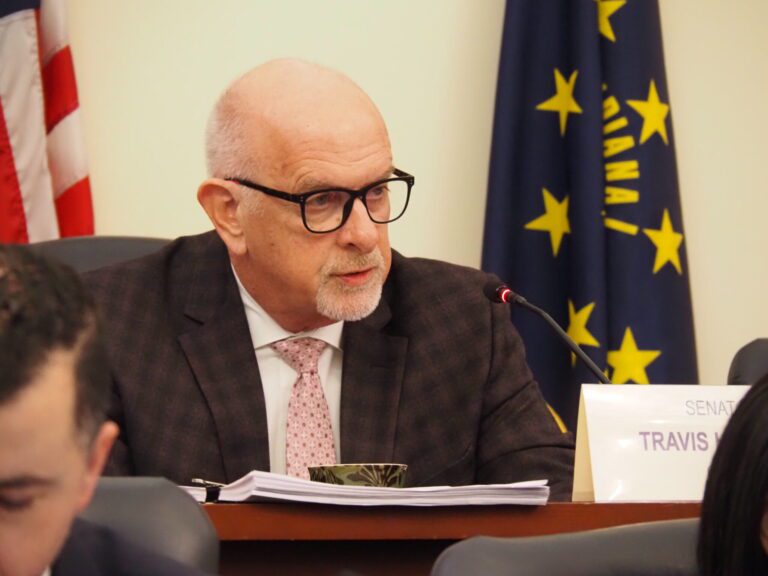🎧 Listen to This Article
A sweeping tax bill consolidating multiple local tax proposals into a single, expansive piece of legislation has drawn bipartisan criticism in the Indiana Senate. House Bill 1427, originally a targeted agency bill focused on Department of Local Government and Finance (DLGF) matters, has ballooned into a 150-page legislative package incorporating provisions from three other tax-related bills. The move has sparked intense debate, with concerns over its impact on local governance, property taxes, and economic development.
A Legislative Overhaul with Broad Implications
Initially centered on administrative tax policies and DLGF rule-making, HB 1427 now includes significant amendments addressing a variety of local tax issues. Among the key additions are:
- Innkeeper’s and Food & Beverage Taxes – Originally addressed in separate bills, these provisions now form part of the consolidated legislation, potentially altering tax structures for local hospitality businesses.
- Local Property Tax Levies – Adjustments that could impact tax assessments and revenue distribution across multiple counties.
- Professional Sports & Convention Center Developments – Provisions enabling cities to create new tax districts to fund sports and convention-related infrastructure projects.
The Senate tax committee advanced the bill in an 8-5 vote, with all Democrats and a key Republican budget leader opposing the measure.
Concerns Over Policy Scope and Local Impact
Sen. Eric Bassler (R-Washington), while supportive of tax policy discussions, expressed reservations about embedding substantial policy changes into an agency bill.
“I’m always a little bit leery to have substantive policy changes for the state in agency bills. If the state is going to make a policy change, I’d rather those bills kind of be standalone language,” Bassler said.
Key Contentious Issues
1. Property Tax Exemptions for Child Care Facilities
Democratic Sen. Andrea Hunley (D-Indianapolis) raised concerns about a provision granting partial property tax exemptions to businesses providing on-site child care. The exemption applies only to care facilities for children under six and excludes independent child care centers, leading to questions about its effectiveness in addressing broader child care access issues.
2. Special Tax Districts for Sports Development
Sen. Ryan Mishler (R-Mishawaka), a top Republican budget leader, took issue with a provision allowing cities in counties with at least four cities (each with populations of 40,000 or more) to create special tax districts for sports-related developments. Under this rule, up to $2 million annually could be redirected from existing tax revenues into city-owned sports facilities. Mishler criticized this as an unvetted maneuver that bypasses standard budget discussions.
“The PSDAs in here – those are usually budget discussions because they reduce revenue,” Mishler said. “I’m a little irritated because I’ve been working with these groups on the investments that they’re bringing in there, and I feel like they just circumvented the system.”
3. Retirement Community Tax Exemptions
A provision setting criteria for continuing care retirement communities (CCRCs) to qualify for property tax exemptions has also proven divisive. Bartholomew County Assessor Ginny Whipple argued that such exemptions should remain under local jurisdiction, warning that carving out special tax breaks for senior communities could increase tax burdens on other residents.
“I think each of these CCRCs are unique and individual. One size does not fit all. This bill would give them a free ride, while other folks over 65, paying their fair share, would not have that same advantage,” Whipple stated.
Senate tax committee chairman Sen. Travis Holdman (R-Markle) pushed back, asserting that tax assessors should focus on administrative duties rather than policy-making.
What’s Next?
With strong opposition from Democrats and skepticism among some Republicans, HB 1427 faces potential revisions before a full Senate vote. Sen. Mishler hinted at possible amendments, though specifics remain unclear.
“This bill, in its current form, is unwieldy,” said Rep. Craig Snow (R-Warsaw), the bill’s author. “We’re open to making changes to refine its impact.”
As the debate unfolds, the future of Indiana’s local tax landscape hangs in the balance, with business leaders, tax assessors, and local officials closely watching the legislative process.
For further details, clarification, contributions, or any concerns regarding this article, please contact us at editorial@tax.news. We value your feedback and are committed to providing accurate and timely information. Please note that our privacy policy will handle all inquiries



